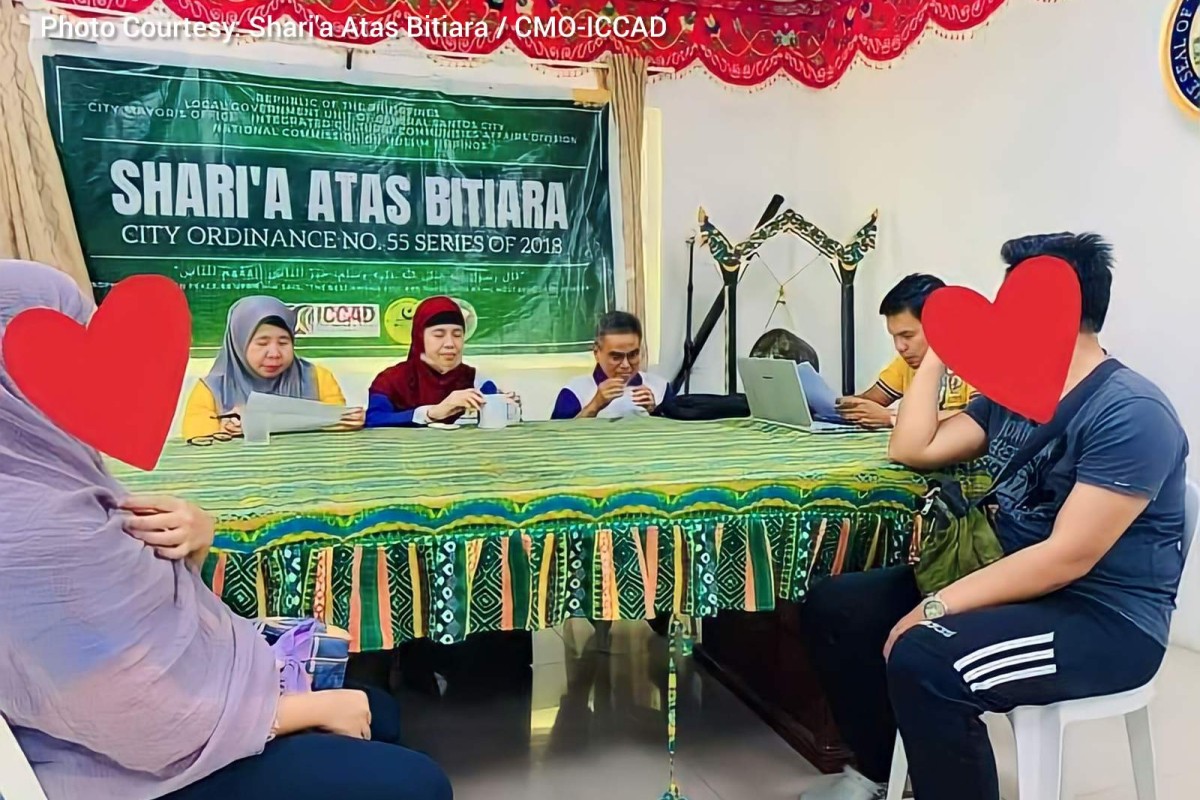
General Santos City is not only famous for its rich cultural heritage and multiculturalism but also for its innovative conflict resolution dubbed Sharia Atas Bitiara (SAB), dedicated to its Muslim residents and communities, which has long been recognized as “best practice” in the city.
Implemented under the City Mayor’s Office-Integrated Cultural Communities Affairs Division (CMO-ICCAD) by virtue of City Ordinance No. 55, series of 2018, the Sharia Atas Bitiara won and received the prestigious “Galing Pook Awards” on October 12, 2023, during the Philippine Councilors League’s year-end assembly held at the World Trade Center in Pasay City, for its effectiveness and innovative approach in addressing conflict.
CMO-ICCAD Chief Jocelyn Lambac-Kanda, also a Sharia counselor, described the initiative as a “ray of hope” for Muslim individuals in search of alternative methods for swiftly resolving conflict grounded in Islamic Jurisprudence, the Code of Muslim Personal Laws, and Moro customs and traditions.
“It won the Galing Pook awards because it’s unique and has a comprehensive approach to settling disputes based on the Code of Muslim Personal Laws and Moro customary laws," Kanda said as she went on to explain that the Sharia Atas Bitiara of the city government of General Santos is also based on Presidential Decree 1083, or the Code of Muslim Personal Laws of the Philippines.
Kanda also articulated how the mechanism works for Muslim disputes of any kind.
"The presence of the Ulama, Kadatuan, and Sharia counselors as members of the mediating team facilitates the speedy resolution of cases through dialogue and amicable settlement,” she pointed out.

The Sharia Atas Bitiara promotes the peaceful resolution of disputes involving marriage, divorce, paternity and filiation, guardianship and custody of minors, support or alimony, claims for customary dower (mahr), betrothal, breach of contract, solemnization and registration of marriage and divorce, rights and obligations between husband and wife, paternal authority, property relations between husband and wife, inheritance, and a host of other issues.
According to Kanda, the Sharia Atas Bitiara involves a diverse panel of highly respected Muslim experts, comprising Sharia counselors, Islamic scholars, and traditional Moro leaders, to ensure that all facets of the disputes or conflicts are fully covered and addressed.
“From mediation, walang mediator’s fee, walang filing fee. Sa Muslim kasi, mayroong pinag-uusapan na damages, depende sa kaso. Kung may damages usually yan, sa traditional way, napupunta doon sa mediators. In Sharia Atas Bitiara, walang napupunta sa mediators, because it’s the local government unit of Gensan ang nagbibigay ng honorarium monthly doon sa mediators,” she said in an interview with the Philippine Information Agency’s Rated PIA program, which is aired and livestreamed over dxGS and the PIA Sarangani-General Santos Facebook page every Tuesday.
[There are no mediator’s fees or filing fees. In the Muslim context, damages are usually discussed, depending on the case. If there are damages, traditionally, they go to the mediators. In the Sharia Atas Bitiara, no fees go to the mediators because it’s the local government unit of General Santos that provides a monthly honorarium for the mediators.]
Kanda also narrated that Sharia Atas Bitiara’s inception stemmed from the absence of a dedicated Sharia court in General Santos City, leaving Muslims to rely only on traditional leaders, known as Kadatuan, for dispute resolution with hefty fees ranging from P40,000 to P60,000.

Making significant strides in promoting peace and harmony within Muslim families and communities since its implementation in 2019, Kanda said that as of Feb. 6, they were able to settle 406 cases out of 481 filed, reiterating the effectiveness of Sharia Atas Bitiara in mitigating the further escalation of conflicts into violence.
“So that’s around 84 percent na success rate ang na-resolve natin. Kasi kung hindi yan na-resolba sa level natin, possible pupunta sa court. Magdami ang cases doon sa court, magkaroon ng clogging. So ang ginagawa natin, declogging,” said Kanda as she emphasized the importance of the presence of a mechanism that is committed and dedicated to reviewing cases down to the smallest details and trying to resolve them in a peaceful manner even with no costs involved.
[So that's around an 84 percent success rate that we've resolved. Because if those aren't resolved at our level, they might go to court, and that can cause congestion. So what we're doing is actually declogging them.]
CMO-ICCAD Assistant Chief Gandhi Kinjiyo also attributed the "peaceful resolution process" to a collaborative approach among mediating partners, resulting in satisfactory outcomes for most of the parties involved.
“There are also instances in court where clients often wait for months before their cases are heard. This is not the case in SAB. The schedule for dialogue among disputing parties when lodged in the Sharia Atas Bitiara is set a week’s time after filing. Most of the cases resolved are of marital conflict,” he said.
Meanwhile, Kanda further encouraged other LGUs across the country, particularly those with huge Muslim populations, “to take a look” at Sharia Atas Bitiara, as they might want to replicate the initiative in their respective areas. (HJPF/CT Apelacio - PIA SarGen)



